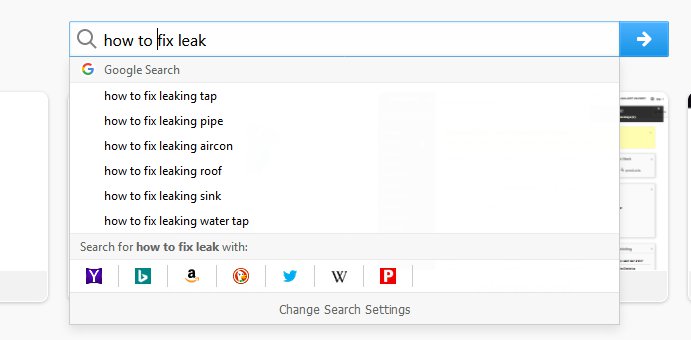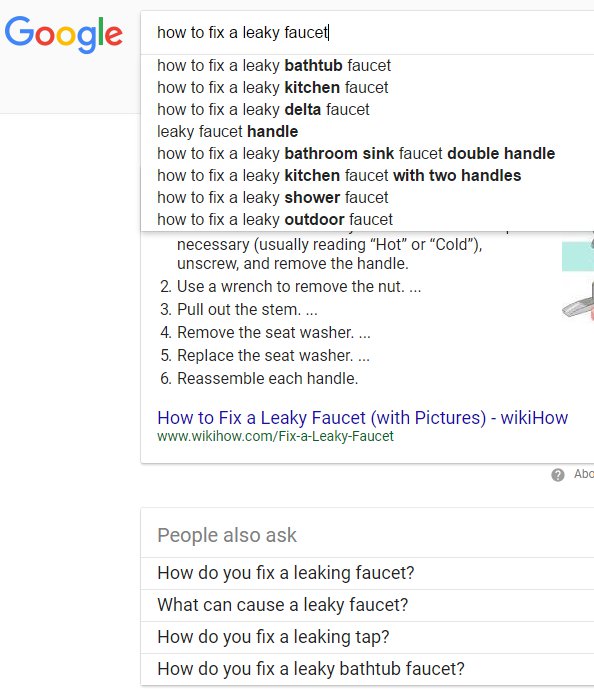
A decade or so ago, some people would try to optimize their pages with their main target keyword in all sorts of ways to try to game Google. They used to pepper their pages with their targeted keywords within articles which didn’t look they were written for humans. Search terms looked like they were forced to fit into page content. Target search terms were also stuffed into pages and then made invisible (to the human eye) by making the font color the same as the background colour. And the list goes on. But Google caught on to their tricks and those sites paid the price.
Fast forward a decade and Google’s algorithm has changed quite a bit. Google does not just look at keywords per se anymore. It looks at context. So how does one optimize a page based on context?
Search Premise
I like home DIY projects because I living on the edge. Thanks to the Google and a bunch of poorly edit (if that) “How to” YouTube videos, I’ve managed to…
- Replace a fluorescent tube with an LED tube
- Change a door lock (even though I got the latch assembly length wrong, but years of MacGyver watching had taught me to improvise)
- Fix faucets, power points and a whole bunch of other stuff (which might not have needed replacing)
In those case, Google did a good job in returning results that help me complete what I wanted to do. Yes, the some of the instructions on some of the blogs were poorly written and the videos could have been shorter. But the bottom line is they were useful. That said, if someone were to come up with better written content and appropriately edited videos, those videos I watched would over time go down in ranking. But that’s a story for another day.
User Search Process And Google Search Results
Before I replaced those items, I began my search for instructions on how to get the job done. The search terms usually began with “How to”. Google then hooked me up with results which contained the words “How to” in them. The content would not only contain instruction but also what I would need to complete the project. Not surprisingly, some of the results were product pages optimized for the search terms with “How to” in the content; usually in the captions or sub headers.

Content Optimization – Use Exact Search Queries
Placing your targeted in your content within a question, helps put things into perspective for Google. If I wanted to replace a door lock but didn’t know how, I would ask Google “How to replace a Yale door lock”. I would not search for “Yale door lock”. If I already knew how to replace a door lock but didn’t know where to get the model I wanted, I’d search for the exact model.
Optimizing your content this way just makes it easier for Google to match your content to search queries. You’re essentially turning your target keyword into a long tail keyword. (for more information on long tail SEO, read this article. Your category pages can contain more generic questions while your product pages can contain more product specific ones. You can also create info pages to offer more in-depth answers. Use video and images to help drive home your points. The idea is to create a resourceful site. Try to make your videos short and to the point. They do not have to be Hollywood quality, they just have to be useful.
Bonus Tip: Use Keywords You’re Already Ranking For
Instead of just optimizing your site for a small group of target keywords, why not strengthen what you’re already ranking for, especially if they can potentially convert your visitors to customers.
Again, use those keywords in context. Make sure it gels with the other content on your page so you get your message across well. Remember, create content for users, not search engines. Everything will fall into place naturally.
Summary
Power up your target keyword list by give them context. Google will happily give you suggestions on what users are searching for. Always deliver what you promise. If you imply that you have the answer to the question “How to fix a leaky faucet”, then you really ought to have the answer on your page. This will help reduce your bounce rate and improve your page authority for the phrase used.
Recent Posts:
- Get A Custom Designed Website + Branding Solution With InstanteStore – From Concept To Creation
- Why Aesthetic Visuals Matter on Your Website and Social Media.
- How InstanteStore Helped Sagiri Dayal Launched A Successful Online Store With Immediate Sales
- SCAM ALERT – Fake Company Asking People To Send Them Money For Tasks
- How To Setup Stripe Account For Ecommerce

